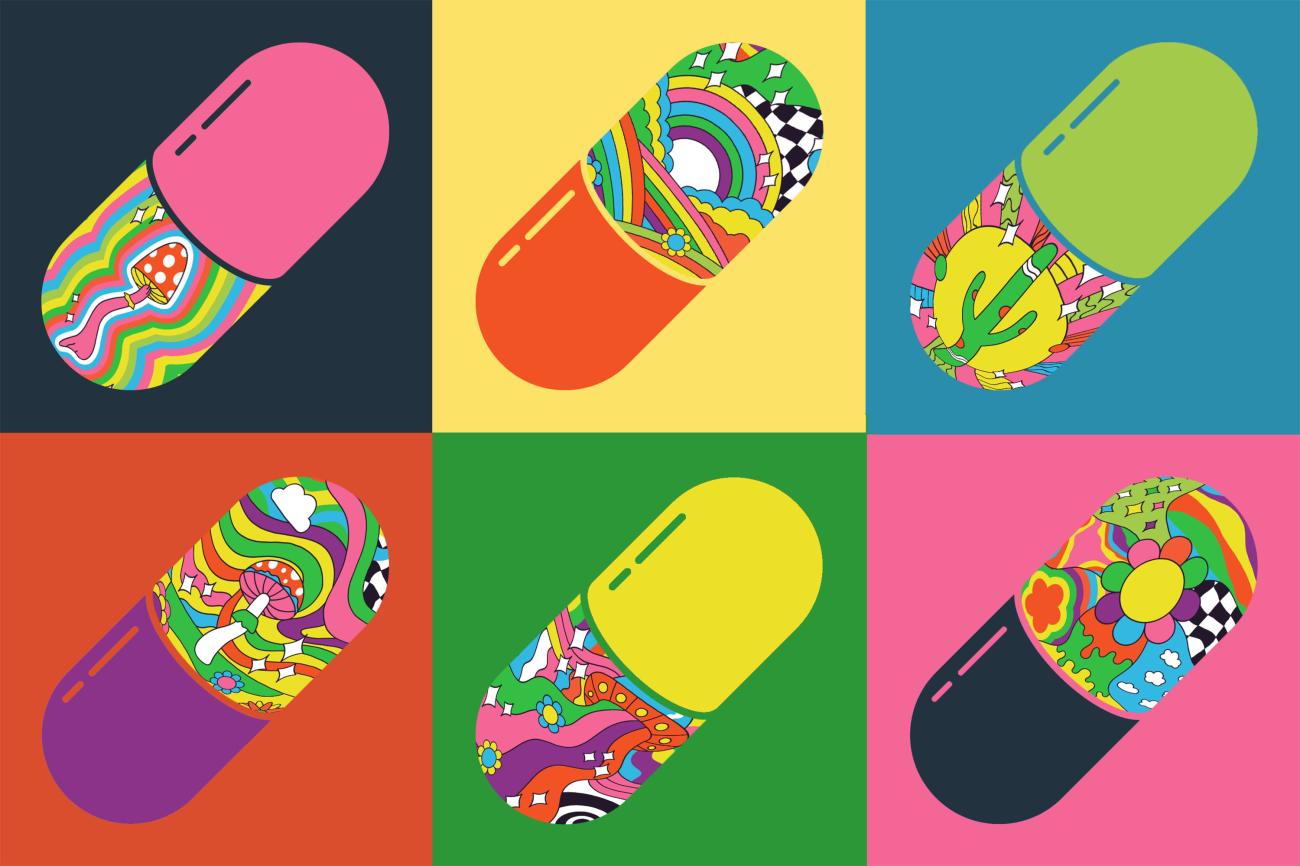Massachusetts offers clear academic pathways into psilocybin research through university programs, hospital trials, and partner labs, so students and early career professionals can gain experience that aligns with FDA and DEA rules. The state’s campuses and teaching hospitals run studies in depression, oncology distress, addiction, and basic neuroscience, which creates training routes in clinical operations, pharmacology, data science, and ethics.
Rising student and faculty interest in psilocybin studies
Interest in psychedelics has moved from informal reading groups to formal labs and trial teams. Faculty in psychiatry, neuroscience, pharmacology, and public health now sponsor projects that fit modern standards for human subjects and controlled substances. Students want skills that translate into real roles. Programs in Massachusetts can meet that demand because they pair classroom learning with hands-on work in IRB approved studies and research pharmacies.
Three forces shape this rise. A strong clinical need for better treatments in mood and anxiety disorders. Mature hospital infrastructure that can manage controlled deliveries, chain of custody, and session days. A research culture that values clear endpoints, validated methods, and transparent reporting. This mix draws undergraduates, graduate students, medical trainees, and postdocs who want to see how science becomes trial practice.
Faculty interest tracks the same logic. Mentors can design projects that ask answerable questions, teach solid methods, and produce data that journals and regulators respect. That makes recruiting easier and wins support from departments that judge success by grants, publications, and student outcomes.
Programs at Harvard, MIT, UMass, and others
Harvard and its hospital network
Harvard Medical School connects investigators across Massachusetts General Hospital, Brigham and Women’s, McLean, and other affiliates. These hospitals run trials in depression and anxiety, oncology related distress, and mechanistic work with imaging or EEG. IRBs in this network are used to session based protocols and require clear manuals for preparation, support, and integration. Pharmacy services manage Schedule I intake and blinded kit issue, which gives trainees a view of compliance that few campuses can match.
Students find roles as raters, coordinators, pharmacy interns, or data assistants. Psychiatry residents rotate through studies and learn session safety, adverse event capture, and consent practices. Psychology trainees deliver manualized support under supervision and learn fidelity checks that protect data quality.
MIT and allied labs
MIT contributes strengths in brain imaging, computational modeling, and device integration. Labs study network dynamics that may track symptom change. Students work on task design, signal processing, and timing aligned to dose. Joint projects with nearby hospitals allow imaging before and after sessions, with pipelines that preserve audit trails from raw data to figures.
University of Massachusetts system
UMass Chan Medical School in Worcester participates in multicenter trials and offers a campus model with centralized IRB, secure storage, and research pharmacy oversight. Students see how a regional site coordinates with sponsors, CROs, and couriers, then fits session days into clinic schedules. The campus works with Boston teams on therapist training and shared SOPs, which helps standardize work across the state.
Boston University, Tufts, Northeastern
Boston University brings addiction medicine, public health, and behavioral science. Tufts adds clinical pharmacology and psychiatry with access to research pharmacies. Northeastern contributes biostatistics, regulatory science, and experiential learning that places students on study teams. These universities often share rater pools, data cores, and pharmacy training, which produces staff who can step into roles quickly.
Training opportunities in neuroscience and pharmacology
Core neuroscience skills
Students learn to connect clinical endpoints with brain measures. Work spans task design, imaging sequence choices, and timing against dose. Teams set quality thresholds for motion or artifacts and document pipelines that let others reproduce results. Short badges or certificates in imaging methods can be paired with lab rotations and supervised projects.
Pharmacology and analytical methods
Clinical programs need validated assays for psilocybin and psilocin. Coursework in HPLC or LC MS, method validation, and stability supports CMC literacy. Site labs benefit from students who can run system suitability tests, prepare standards, and compare results with supplier data. Interlab agreement before first shipment reduces risk in inspections, which makes this training valuable to hospitals and sponsors.
Research pharmacy operations
Pharmacy students practice receipt, storage, and accountability for controlled products. Training covers seal checks, label verification, kit logging, temperature data downloads, and reconciliation after visits. Students learn destruction procedures with witnesses at closeout. A short intake rehearsal with a pilot kit is common, and students who lead that drill gain practical credibility.
Clinical operations and therapist competencies
Psychology and social work trainees learn manualized preparation, acute support, and integration. They document sessions with templates that fit protocol and audit needs. Supervision models use case review and rating rubrics for fidelity. Psychiatry residents manage safety during sessions, vital sign thresholds for intervention, and medication reviews that screen for interactions.
Data management and statistics
Biostatistics students build eCRFs that map session visits and long follow ups, write edit checks, and manage query workflows. They version analysis plans and code so figures can be regenerated from raw data. Teams that use clear folder structures and scripted pipelines avoid errors that plague manual methods.
Ethics and governance
All trainees need strong grounding in consent, confidentiality, therapist boundaries, and incident reporting. Programs teach how FDA trials differ from state service models. That distinction prevents policy errors and keeps communication clear with patients, press, and partners.
Career prospects tied to clinical research
Massachusetts hosts the full spectrum of roles tied to trial work, which creates job paths for students from many disciplines.
Clinical research coordinators
CRCs schedule visits, manage consent, maintain eCRFs, and keep session rooms ready. Candidates with experience in session scheduling and long observation windows stand out. Reliability with window management and adverse event capture is prized.
Therapists and facilitators
Psychologists and clinical social workers deliver preparation, support, and integration under supervision. Manuals and fidelity rubrics guide practice. A record of clean notes and adherence to visit timing is attractive to sponsors and hospitals.
Psychiatrists and medical staff
Physicians manage inclusion criteria, safety during sessions, and medical review of adverse events. Training in controlled substance protocols and clear documentation supports promotion to investigator roles.
Pharmacists and pharmacy technicians
Research pharmacies hire staff who can run intake, logging, and reconciliation, then coordinate returns or destruction. Candidates who can operate accountability software and understand kit maps move quickly into lead roles.
Regulatory and quality specialists
Teams need staff who can assemble IRB submissions, maintain investigator site files, and audit chain records. Experience with COAs, stability summaries, shipment memos, and DEA permits translates directly to quality roles.
Data managers and biostatisticians
Roles include database builds, data cleaning, analysis pipelines, and reporting. Students who can track randomization, blinding, and window adherence help avoid costly rework late in studies.
CRO and supplier positions
CROs recruit monitors, pharmacists, and data staff who understand session based visits. Suppliers hire quality, analytical, and logistics staff who support permit aligned shipments, matched placebo, and intake rehearsals. As suppliers, we often collaborate with hospital teams during intake and audit prep, which exposes early career staff to document control and controlled logistics.
The mix of hospitals, CROs, analytics labs, and suppliers in Massachusetts means graduates can switch sectors without leaving the state. This mobility raises standards, because practices that work in one setting tend to spread across employers.
How young professionals in MA can enter the field
A practical plan helps students turn interest into a role.
Pick a track
Choose a home base in psychiatry, psychology, pharmacy, neuroscience, data science, or regulatory affairs. Each track has defined skills that programs need today.
Gain regulated experience
Join a study that runs under IRB approval. Help with receipt drills, kit logging, and temperature file downloads. Assist with rating scales or eCRF entry. These tasks teach daily discipline and build references from staff who run tight files.
Learn the documents
Read a protocol, consent, therapy manual, and pharmacy SOP. Learn what a COA and a stability summary look like. Understand how a shipment memo mirrors an import permit. These artifacts repeat across studies and employers.
Practice timing
Session work lives on calendars. Learn how to book rooms, align pharmacy issue times, and keep windows for outcomes and safety checks. Coordinators who keep timing under control protect endpoints and build trust.
Build supervised hours
Therapists should gather supervised sessions and join case reviews. Pharmacists should log supervised intake and reconciliation. Data staff should publish code that turns raw entries into tables that match the analysis plan. Supervised hours signal readiness.
Seek interlab and intersite exposure
If you work in a lab, support an interlab comparison. If you work on a multicenter study, learn how sites share labels, kit maps, and training. Cross site experience travels well and prepares you for larger phases.
Create simple tools
Intake checklists, room setup guides, binder maps, and job aids solve real problems. Share them with your team. These tools show initiative and improve quality more than long reports.
Mind ethics and communication
Use clear, neutral language in notes and emails. Keep confidentiality. Route media questions to study leads. Avoid claims about efficacy outside approved materials.
Network with purpose
Attend seminars run by hospitals and universities. Volunteer for mock receipts or imaging dry runs. Ask mentors for pointed feedback on skills that need work. Offers often follow from steady help during crunch times.
Massachusetts provides rare density in academic programs, hospitals, CROs, analytics labs, and suppliers. Students who build regulated experience, respect controlled handling, and contribute practical tools can move into roles that matter on day one. With steady training in neuroscience, pharmacology, clinical operations, and data, young professionals can join teams that run careful studies and publish results that the field can trust.




